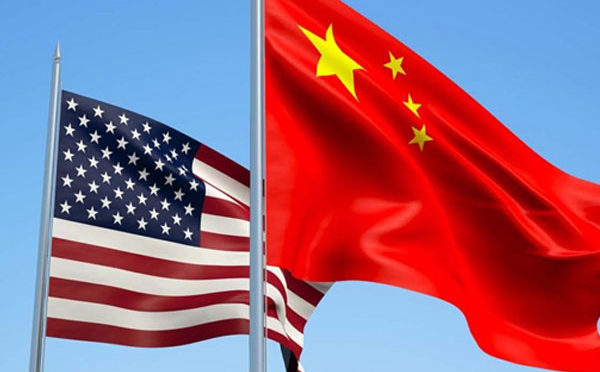US and China: Decreasing transparency as a recipe for war
Posted on : July 19, 2020Author : AGA Admin

The early part of the 21st century can be arguably determined as riddled with uncertainties. The attacks of 9/11 changed the way the world perceived threats. The financial crash of 2008 brought back the old debates from the dustbin of history. The COVID-19 Pandemic at the start of the new decade altered many aspects of our livelihood. It even brought an economic depression that was compared by the International Monetary Fund to the great depression of the 1930s. The situation looks grim enough and the last thing the world needs is a war between great powers.
Conflict is inevitable, for long it has been a defining aspect of human societies. The resolution of conflict through war however shows us what great follies the human race is capable of. On September 28, 2018 the Chinese Foreign Minister Wang Yi emphatically asserted at the United Nations, “China will not become, will not challenge, will not take the place of the United States.” However, in recent years the aggressive Chinese foreign policy tells a different picture. The end of the Cold War saw a unipolar world with the United States of America as the hegemon. Over the years with the economic rise and military modernisation, China became enmeshed into global politics. In the recent years Chinese foreign policy has sometimes aggressively clashed with US interests, leading to scepticism about the unipolar world.
Rising power and consequent shifts in the balance of power has long been considered as critical challenges to the international order. The defining question about the international order is whether China and the United States can escape the Thucydides Trap. The Athenian Historian’s metaphor reminds us of the complexities and dangers which arise when a rising power challenges a ruling power. History has numerous examples of such phenomenon – when Athens challenged Sparta in ancient Greece, or as Germany did Britain a century ago. The end of such challenges often ended up with war – 12 out of 16 cases in the past 500 years. More than 2400 years ago Thucydides wrote, “It was the rise of Athens, and the fear that this inspired in Sparta, that made war inevitable.” It was the rising power’s entitlement, the sense of its importance and increasing dominance on the one hand which created the sense of insecurity, and the resolution to defend the status quo which ultimately led to the Peloponnesian War.
The massive rise of the Chinese economy, the continuous effort of the Chinese government to rise as a regional power and ultimately revolutionise world trade through the Belt and Road Initiative, the constant aggression of the Chinese military in the South China Sea, threatening US’s allies all brings pictures of a country threatening the global hegemon. China is not another big player in the world but the biggest player the world has ever seen in recent times. However, the fall of the US and China in the Thucydides Trap is not inevitable. The present world order should prevent the escalation of war at all cost.
The Democratic Peace Theory posits that democratic states are highly unlikely to wage war against one another as democracies externalise their domestic norms of conflict resolutions when interacting with other states in the international sphere. Thus, when democracies interact with one another they abide by norms, emphasizing the peaceful resolution of conflict through negotiation and political compromise. Countries are perceived as trustworthy and predictable when they are governed democratically. By contrast, non-democracies with despotic rule are perceived as possibly dangerous and unpredictable.
One of the main examples of this theory was the case of power transition where Great Britain failed to challenge the rise of the United States which ultimately led to the loss of Great Britain’s dominance. Attributes like the presence of free space in both countries, domestic checks and balances enhances transparency which ultimately led to increased trust.
Unfortunately, the United States and China do not share neither a common political culture nor a common political structure. China exhibits an autocratic domestic political system and the United States a democratic one.
From a Liberal International Theory perspective, it was proposed by many that enmeshing Chinese economic interests with the global economy and international institutions, would encourage the domestic leaders for meaningful political reform. However, the contrary has happened. Rather than reforming its political institutions into more democratic alternatives, China has deepened its authoritarianism and with globalisation turning its outward. Over the years China has invested massively in technologies that make surveillance easy. The other kind of non-democratic engagement includes the absence of a free press. In terms of freedom of the press the United States ranks 45th in the world, while China ranks 177th out of 180 countries. China has also tightened restrictions on Internet usage and it features a firewall that blocks many social media sites and international news websites in mainland China. Moreover, many human rights lawyers and activists were detained and were held in secret not allowed to communicate with their families and lawyers of their choice.
Democracies are more likely to use force against autocracies. The current US National Security Strategy states that it is the nature of the Chinese system that potentially makes it an enemy of the United States. It states that, “these are fundamentally political contests between those who favour repressive systems and those who favour free societies.”
One of the most important elements in favour of the democratic peace theory in this regard is the transparency argument which posits that democratic institutions enable reliable signalling in times of crisis. A major cause of war in international politics is rooted in the security dilemma which is fuelled by the uncertainty about intentions of the other actors. Democratic institutional procedures foster transparency and they enable a clear communication of political goals. Thus, it leads to the reduction in uncertainties. In this situation it seems that a war between the two countries is very likely because of the reduction in transparencies between the two countries and constant tussle in trade and territorial disputes. It is only through increasing transparencies and greater diplomatic effort a peace between the two powers can be guaranteed. A great war will be the last nail in the coffin.
Manish Dutta, Intern, Asia in Global Affairs
Works Cited
Allison, Graham. “Destined for War: Can China and the United States Escape Thucydides’s Trap?” The Atlantic, 5 Dec. 2016, www.theatlantic.com/international/archive/2015/09/united-states-china-war-thucydides-trap/406756.
—. “The Thucydides Trap.” Foreign Policy, 12 Apr. 2019, foreignpolicy.com/2017/06/09/the-thucydides-trap.
Mastro, Oriana Skylar. “In the Shadow of the Thucydides Trap: International Relations Theory and the Prospects for Peace in U.S.-China Relations.” Journal of Chinese Political Science, vol. 24, no. 1, 2018, pp. 25–45. Springer, doi:10.1007/s11366-018-9581-4.
Reporters Without Borders. “World Press Freedom Index.” RSF, Reporters Without Borders, rsf.org/en/ranking. Accessed 15 July 2020.
Stauffer, Brian. “World Report 2017: Rights Trends in China.” Human Rights Watch, 12 Jan. 2017, www.hrw.org/world-report/2017/country-chapters/china-and-tibet.





Leave a Reply